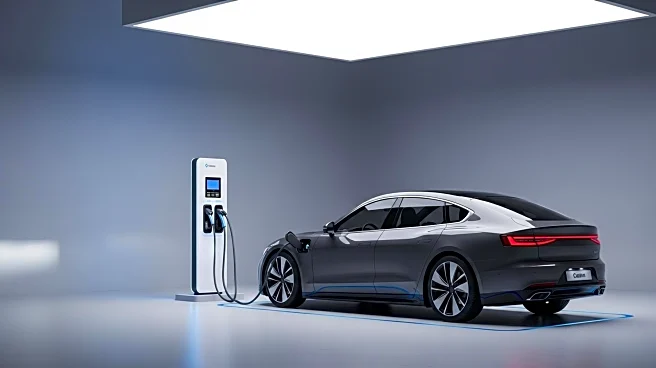What's Happening?
The debate over the utility and environmental impact of plugin hybrid electric vehicles (PHEVs) continues to be a contentious topic among electric vehicle enthusiasts and experts. CleanTechnica recently featured comments from readers expressing divergent views on the effectiveness of PHEVs. One reader, Tom Dillon, criticized PHEVs for not meeting EPA ratings and likened them to traditional gas cars, citing personal experiences where PHEVs were not used as intended. Another reader, 'Peace Man,' defended PHEVs, highlighting their benefits in regions lacking charging infrastructure and their ability to operate primarily on electricity. The discussion underscores the varied experiences and opinions on PHEVs, with some advocating for their role as transitional vehicles towards full electrification.
Why It's Important?
The ongoing debate about PHEVs is significant as it reflects broader discussions on the transition to electric vehicles and sustainable transportation. PHEVs are often seen as a bridge between traditional internal combustion engine vehicles and fully electric vehicles, offering flexibility in regions with limited charging infrastructure. However, their environmental benefits are questioned when not used properly, potentially leading to higher emissions than anticipated. This debate impacts consumer choices, policy decisions, and the automotive industry's approach to developing and marketing electric vehicles. Understanding the role of PHEVs in the market is crucial for stakeholders aiming to reduce carbon emissions and promote sustainable transportation solutions.
What's Next?
The future of PHEVs may depend on advancements in charging infrastructure and consumer education on their proper use. Policymakers might consider revising incentives to ensure PHEVs are used effectively, maximizing their environmental benefits. The automotive industry could focus on improving PHEV technology and expanding the availability of fully electric vehicles as infrastructure improves. Continued dialogue among consumers, industry experts, and policymakers will be essential in shaping the role of PHEVs in the transition to sustainable transportation.
Beyond the Headlines
The debate over PHEVs also touches on ethical considerations regarding consumer responsibility and the effectiveness of environmental policies. As the market evolves, there may be cultural shifts in how consumers perceive hybrid and electric vehicles, influencing purchasing decisions and driving habits. Long-term, the discussion could lead to more stringent regulations and standards for vehicle emissions and efficiency, impacting the automotive industry's innovation strategies.










